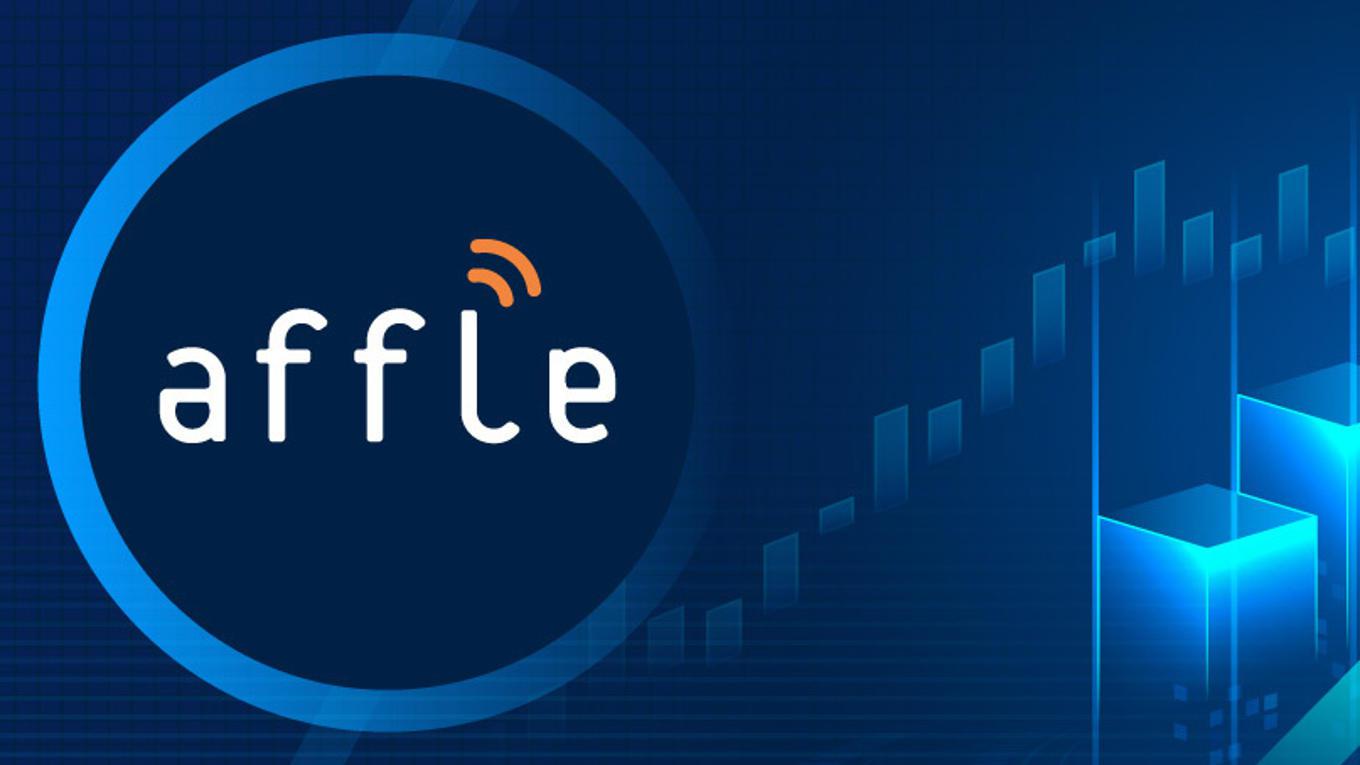-
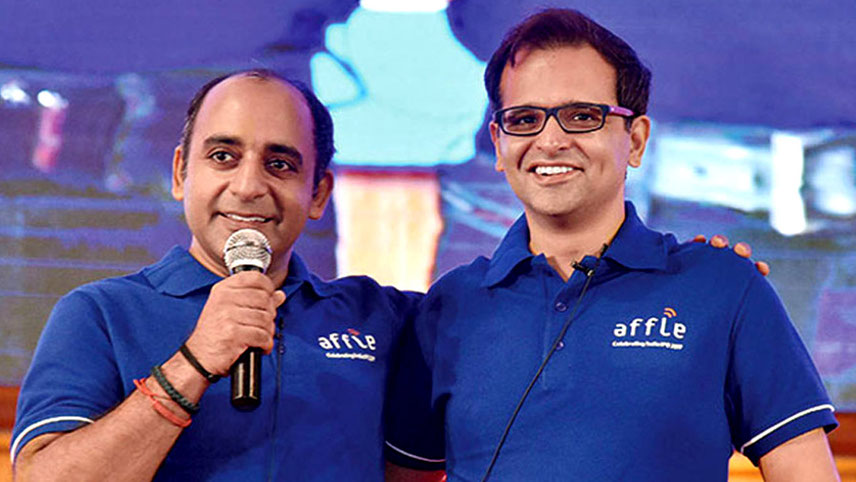
Sohum and Kumar: delivering shareholder returns
Affle is amongst the few companies that have been recognised with Accreditation@SGD program based on audits/assessment of the products/platforms/processes by the Infocomm Media Development Authority of Singapore (IMDA). This accreditation is based on technical assessment of security, reliability, usability and maintainability as well as business sustainability & scalability.
The beginnings
For starters, Affle is a platform that aims to enhance returns on marketing investment through contextual mobile ads and also by reducing digital ad fraud. While Affle’s consumer platform is used by online and offline companies for measurable mobile advertising, its enterprise platform helps offline companies to go online through platform-based app development, enablement of online to offline (O2O) commerce and through its customer data platform.
“So, after the IPO, in March 2020, we bought Media Smart. In June 2020, we bought App Next and then in July 2020, we made a minority 8 per cent ownership and Indus OS, which is India’s largest, independent, local language, indigenous languages, space app store, which is by default available on all Samsung devices in India now. So we have done very meaningful investments and the ones we’re talking about, Media Smart and Appnext, they are controlling 100 per cent on their IP or assets,” says Sohum.
Sohum’s journey to become an entrepreneur and his journey from Lucknow to Singapore makes interesting reading. “I was 16 years when I left Lucknow on a scholarship from Singapore Airlines to study in Singapore and I remember distinctly that during the scholarship interview I was asked why do you want to go to Singapore and my answer was that I am definitely going to start my own business one day and Singapore might just offer the right environment,” says a candid Sohum.
This was in January 1995. “In Singapore, everything that is ‘best’ is always called ‘Raffle’. I went to a school which was called Raffle Junior College. These things really impressed me and the name had a strong association for me. When we started Affle, we were thinking of the names and started thinking that it should be no more than five letters. And it should start with ‘A’ and be a unique name that we can stand for. There was another aspect to it, which was; what are we doing fundamentally, and the acronym. We also thought that ‘le’ are the last two digits of ‘mobile’. In 2005, we founded Affle in Singapore”.
The logo as well as the name has stayed constant as well as the company’s strategy for being focused on in-app mobile marketing and mobile advertising because what advertising does is it “brings to the consumer and the app by advertising and therefore the consumer can get a free app or premium content and so on,” says Sohum, disclosing the choice of name for his company.
-
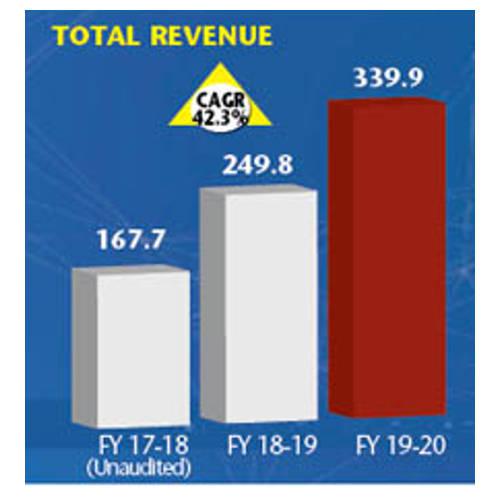
Initially, he started a business at an early stage. At 19, he was still in the second year of his computer engineering course and he had conceptualised his venture. “I started my first company while I was still a student in Singapore. The company was called ANITUS Technologies and it was me – AN is Anuj, that is my name, IT is the name for Hamit (another co-founder) and Julius, that’s the third co-founder so US is his name, so three names in that order became ANITUS Technologies. My other two founders were based in the US at that time, so as I was in Singapore, I registered the company,” says Sohum.
Under immigration laws, you cannot even work part-time so how you start your company? “But the Company Act in Singapore allows a foreigner on a student pass or not even present in Singapore to be a foreign director and to own shares in a Singapore registered company, so I could own the company, I could direct the company but, I cannot work with the company. So, I was a foreign director who was owning his company and I was essentially still a full-time student in the university so I couldn’t take a sabbatical for exams. My university as well as the ministry of education, they pretty much said that if you want to own and do this you can, but you still have to meet your academic qualifications, that means you have to pass all your examinations well and be a full time student; what you do outside, how you direct and own that company, it’s your problem and that’s what got me into entrepreneurship. I incidentally sold that company before I graduated. I was in the fourth year of university and also gave a recruitment top on campus”.
ANITUS Technologies was a knowledge and document management company that was going to other small to medium enterprises and offering them the ability to have an Internet base portal. The product was called work space (knowledge management) and another product was called doc space (document management). It was a collaboration and a productivity tool that use the Internet to share information and collaborate with it.
Digital trends
“Considering the recent Covid-19 pandemic, we believe there will be a significant shift among consumers to adopt digital technology. Among these, we believe e-commerce will witness robust growth and be a key segment driving digital ad spend in the future. Affle (primarily a mobile ad tech player) generates more than 50 per cent of its revenues from e-commerce and has worked with marquee e-commerce companies like Amazon and Flipkart, making it a key beneficiary of digital trends in the future,” states Pankaj Pandey, head – research at ICICI Direct in a report talking about the RoI focused advertisements which make Affle a preferred ad tech partner.
-
Affle generates 90 per cent of its revenues through cost per converted user in which the company charges for an advertisement only if the user gets converted
As it happens, Affle has 2.02 billion consumer profiles (571 million consumer profiles in India, 582 million in other emerging markets and 867 million in developed markets) and over 300 billion data points through its data management platform. “This unique insight enables it to make a predictive algorithm to recommend mobile users who are most likely to engage with a particular advertisement. This, coupled with mFaaS (a fraud detection platform) and acquisition of RevX (helps in real time buying and selling of advertisement inventory) enables Affle to provide an end-to-end digital advertising solution,” says the ICICI Direct report.
“Further, it also enables the company to cost-effectively match users intent or interest with relevant advertisements, deliver more relevant and engaging experiences to consumers, which is more likely to lead to the desired action, such as downloading of an app or the purchase of a product or service. This differentiates Affle from its cost per click peers and helps customers to generate higher returns on their investment. It also helps it to have higher customer retention,” says the report pointing that Affle has seen 80 per cent and 100 per cent of customer recurrence in the past two years, respectively, while six of its top-10 clients have been with the company for more than three years.
Affle generates 90 per cent of its revenues through cost per converted user (CPCu) in which the company charges for an advertisement only if the user gets converted. “We believe this is a unique business model and expect the market to move towards such performance-based advertising, making Affle a preferred ad tech partner,” concludes the report.
“Even before Covid, the world was shifting towards digital and mobile at a certain speed. But in the Covid lockdown situation, I would say that the shift has become faster and stronger. And if somebody was just using that for input, now they are using it for a lot more things. So, a lot of people are adopting this curve, which was already happening, it was a mega trend before as well; everybody knows that things were going online, but now with Covid the pull and pace of this adoption has only accelerated. And the average value of any transaction that people are willing to do has also gone up,” adds Sohum predicting the macro trends.
-

“Yes, I mean, they’re doing even better, especially in markets like India, Indonesia, Thailand, Vietnam, Southeast Asia, in emerging markets or Latin American markets or Africa, Middle East, you know, these are the fields where the penetration of mobile comes first. People will need to definitely invest and spend in reaching out to consumers so from both the consumer side as well as the customer returns side, advertisers lean more towards the adoption of mobile,” observes Sohum whose model is more likely to lead in the desired action, such as downloading an app purchase of products.
Against SMS push
Does this differentiate Affle from its cost per click peers and help advertisers generate higher return on investment (RoI)? “That is correct. If somebody is doing cost per impression, cost per click, that is one approach of doing business but our approach is cost per converted user (CPCu). And a big part of our business is anchored on this business model, which is basically where the user will see an ad but they also take some decisive action to not just look at the ad, but also get the app of the advertiser and not just getting the app but also registering into it, launching it, maybe even taking certain further actions with respect to what is mutually agreed between Affle and the advertiser as a conversion. So the CPCu business model is a more RoI link to this model. It is providing the advertiser a better sort of linkage to the RoI,” discloses Sohum adding that RoI means they only pay when they get a conversion versus needing to pay when their ad is seen or their ad is clicked.
“So, in our case, we were against SMS push advertising. We thought that SMS advertising is a bad way, so intrusive advertising was something we were against, therefore the title of the patent was consumer acceptable advertising because we knew fundamentally as consumers that generally advertising is not liked by anyone so why will somebody like an ad on such a personal device. We were like how do we crack this, what is the way to give the consumer acceptable advertising, so our idea was simple. It has to be not very deep and intrusive. It has to be when a user is actually looking at the screen waiting for something and in that context, you can have advertising blended within time,” observes Sohum.
It is like, if you are reading a news article on your phone and within that space 80 per cent is for content and 20 per cent for an ad, then people will accept it. “Second thing in our patent which is clear, is that it is browser-based, so digital advertising on PC is largely a phenomena of – there is a browser, you go to a website and you see ads; there is no concept of, there are apps on the desktop and then you see ads in that,” adds Sohum pointing out that in mobiles they already had a clear vision that many phone apps are already pre-loaded – you open the app and it will give you the content. If you remind yourself of 2005, Apple had no plans for iOS and Google had no plans for Android. Nokia was, by far, the king and Blackberry was considered a cool device.
-
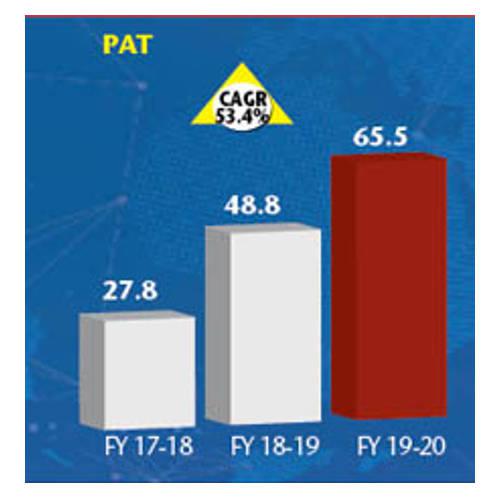
Both these companies today are largely out of business. “We are driving because we were not really caring about device care, we were caring for the consumer using that device, his data entered and getting the advertiser. Mobile has evolved and has become better, consumers’ usage on mobile has gone up, the ecosystem has gone to non-browser paid apps.” Today, 95 per cent of smartphone usage is in app usage, which Affle saw and invested in. The business of mobile advertising has become a reality, and in the last five years it has become a significant business.
“We think the underlying macro is attractive in Affle’s key markets (India & SEA), where a large internet user base, rising smartphone sales, improving data connectivity and young demographics augur well for the shift to digital. Ad spends are expected to grow faster at 32 per cent and 18 per cent CAGR in India and SEA versus 15 per cent globally over FY18-21E. Despite this, penetration is expected to remain low at 25-30 per cent by FY20/21E versus 54 per cent globally, thereby offering a long runway for growth. Further, as advertisers shift to direct sourcing, ad tech vendors could retain a higher share of digital ad spends, implying faster growth for ad tech vendors,” states the Nomura report.
In FY19, Affle generated 75 per cent of revenue from India/emerging market (EM) and 55 per cent from ecommerce, where digital adoption is high at 34 per cent of overall ad spends versus the 17 per cent average in India. “Digital ad spending is likely to remain robust in e-commerce as it allows for a wider reach (to Tier-2/3 cities) and should help to improve the low online shopper penetration (25 per cent in India versus 70-80 per cent in US/China). Hence, ecommerce’s share in digital ad spend is likely to increase from 17 per cent to 22 per cent by 2021 as per DAN (a media agency). Moreover, we see potential for Affle to expand further into online travel, BFSI/Fintech, where digital adoption is high,” says the Nomura report looking at the end-to-end offering plus the CPCu model driving ROI and client retention.
Key differentiator
“We think a key differentiator for Affle is its end-to-end automated mobile advertising consumer platform, which integrates with its strong DMP (data management platform), mFaaS (fraud detection) and effective user prediction algorithm. This, coupled with a cost per converted user (CPCU) model, drives ROI and ensures high client retention and strong network effects.”
In May 2020, Affle strengthens its leadership team by appointing Sujoy Golan as chief of marketing and omnichannel platforms. Golan leads the marketing function and helps drive the business growth, Golan joins Affle with more than 14 years of experience in businesses across the Fintech, SaaS, Ad Tech, and e-commerce industries. He has been a part of leadership teams at Lendingkart, Unbxd, InMobi, Flipkart and Directi, contributing to their growth since the early stages. In his most recent stint, at Lendingkart, he played a key role in building one of India’s largest MSME fintechs as VP and head of marketing.
-
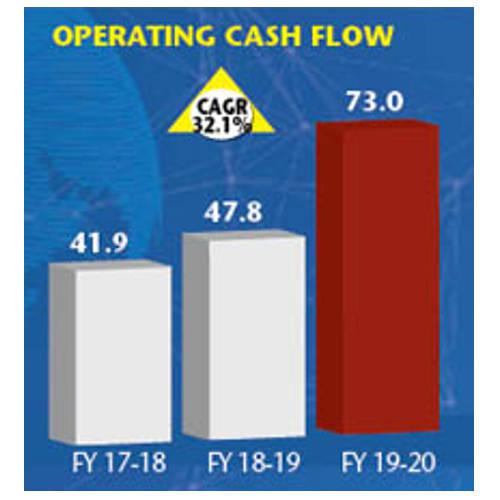
“Affle’s unique competitive advantage is powered by its differentiated business model and its proprietary tech platforms with strategic emphasis on the omnichannel platforms,” says Golan. Earlier, Affle’s other key appointments was of Tarun Aditya to lead the data science team and Pranesh Sharma who joined to lead product management for the platform-as-a-service business. Prior to this, Aditya led the data science teams at MoEngage and Near and had earlier played key roles in companies like Amazon and Dell. As for Sharma, he was earlier driving the product management for Samsung’s ad and data platforms.
“Meanwhile, the company has historically done acquisitions to have complementing teams, technology and data to strengthen expansion into other emerging markets, to increase growth and to increase recurrence and retention of customers and for revenue and profitability growth,” says the ICICI Direct report. Some of the recent acquisitions by the company are Vizury, which helps target users to transact online by targeting them with personalised product ads, RevX (an analytics and artificial intelligence platform that enables Affle to make real time decision), and Shoffr (helps in online to offline conversion).
“All these acquisitions have enabled Affle to provide an end to end solution for digital advertising. The company plans to invest its residual cash flow for acquisition for the next few years. This will lead to growth through the inorganic route. We believe profits will be ploughed back for acquisitions. We have not modelled any acquisitions except the ones that are already made. Cross-sell opportunities for offline business in India and growth outside India.”
The company’s enterprise solution helps offline business to have online commerce by helping them build an e-commerce business. “We believe this can be a huge potential in the long term, considering there are many offline retailers in India that may need an online presence.”
Globally ecommerce revenue was $2.29 trillion in 2017, which comprised only 10 per cent of total global retail sales, thereby providing significant opportunity in the medium to long term to enable the shift to e-commerce global.
Tough competition
Competition from large technology giants like Google and Facebook is a threat. “Google and Facebook contribute about 80 per cent of ad tech revenue. With their respective native platforms that have access to billions of user profiles worldwide they can do targeted advertisement as per the likes and dislikes of customers. Google and Facebook dominate not just in market share but also user practices, pricing policies and general terms and conditions,” says the report.
Apart from Google and Facebook, there are over 100 companies around the world which offer one or more components of this solution. However, only a few companies operate internationally, including, among others, Affle India, InMobi, Criteo, Tradedesk, Freakout, Mobvista and YouAppi.
“So, the main platform is organic growth now, on an expanded basis, what we have already invested in acquisition should also generate cash. As more cash gets generated, the ability to do more investments will also come. But we will always look at it very selectively and carefully, just like we have always done in the past. If the right opportunity comes, we will invest,” concludes Sohum.
